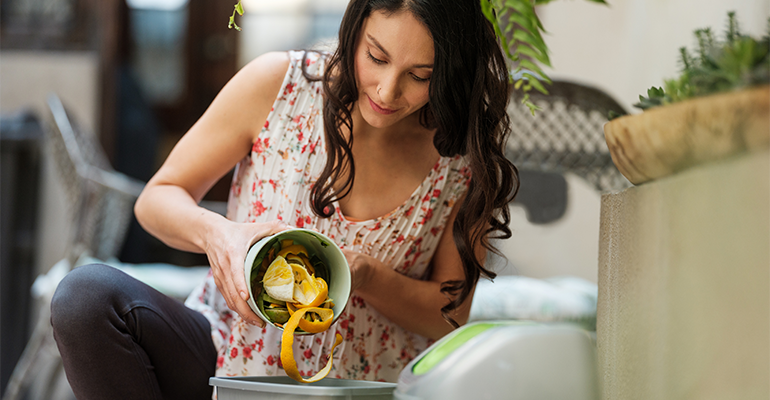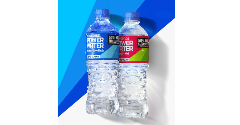News
Compostable packaging claims rubbished by regulator
9 Jun 2025Compostable coffee capsule ads from brands including Dualit and Lavazza Coffee have been banned after the UK’s advertising watchdog deemed them to be "misleading".

In Lavazza’s case, the Advertising Standards Authority (ASA) was investigating a paid-for search ad for its Eco Caps coffee pods that ran on 7 June 2024. The ad stated: “Lavazza [...] New Eco Caps”, with further text reading: “Lavazza A Modo Mio Eco Caps: the coffee shop taste in compostable capsules for your home. Good as usual, feels even better! The taste of Lavazza Coffee in a Compostable Capsule [...] Your Espresso at Home."
The pods are certified to the European Standard EN13432, which means they are designed to break down within an industrial composting facility. They would not necessarily break down within a domestic compost heap, as the composts differ in composition, for example, and in temperature.
“The claim ‘compostable capsules’ implied the capsules, which would typically be used within the home, could be composted in a home composter, but as they were not intended to be placed there, we considered the claim was likely to mislead,” the ASA ruled.
Lavazza also had plenty of space to make this clear in the ad, the regulator added: “The ad had a character limit of 270, Lavazza had used 252. There was, therefore, sufficient space within the ad format to correctly inform about the nature of the product and how it should be disposed.”
Sustainability claims and the ‘green halo’ effect
Claims around the sustainability of packaging are becoming ubiquitous – not least because these provide a “green halo” for the products inside.
Use of terms like “compostable” and “biodegradable” is now commonplace across many types of packaging – their popularity rising on the back of the criticism of plastic packaging.
However, what these terms mean can often be unclear. For example, packaging can be compostable either at home (for example, in a garden compost heap) or at an industrial composting site. There are certifications available for both “home compostable” and “industrially compostable” packaging.
Dualit, a British manufacturer of kitchen and catering equipment, was reprimanded in a similar case to Lavazza. “Dualit Coffee Bags – Compostable Coffee Bags”, its ad read, followed by: “Discover Dualit's compostable coffee bags – café-quality ground coffee in a bag.”
The company said its coffee bags have been certified as industrially compostable and made from polylactic acid (PLA), a material derived from sugars extracted from plants and ground coffee.
Much like Lavazza’s argument, Dualit said consumers would interpret the claim “Compostable Coffee Bags” to mean the bags were made from a compostable material and would not assume they were home compostable.
However, the ASA disagreed, citing its guidance: “If the disposal process referred to in an ad was likely to differ from the average consumer's expectation of what that process entailed, that may be considered material information.
“The claim was, therefore, likely to need qualification – for example, by making clear where and how the product should be disposed of.”
Greenwashing continues after regulator’s ruling
Green claims are becoming increasingly difficult to navigate as regulators in Europe, in particular, begin to squeeze out specious claims.
The ASA has been using AI to check adverts – up to half a million of them a month, according to some reports.
Whether these have led to more accurate adverts is unclear. Some companies have stopped making green claims altogether – a trend called “greenhushing”. Others have carried on regardless of the ASA’s rulings, it seems.
In May, an Unearthed analysis of online marketing activity by 44 companies ruled to have made misleading green claims in recent years, found that at least five had continued to promote similar or identical claims after the ASA ruling.
For example, the front page of bottled water brand Aqua Pura’s website continued to boast about its “NEW Environmentally Friendly Caps”, three years after the ASA told the company to stop claiming that plastic bottle lids were “eco-friendly”. The page has now been updated.
The food and beverage industry has been at the centre of several investigations relating to greenwashing, both by regulators and NGOs.
Tyson Foods and Thai Union have, for example, been accused of making empty environmental promises. A February report by Changing Markets Foundation and Greenpeace Nordic accused Denmark-based dairy giant Arla of failing to meet its environmental pledges.
In the UK, the Competition and Markets Authority now has the power to fine businesses up to 10% of turnover for making false green claims.
Meanwhile, the Netherlands Authority for Consumers and Markets has warned food companies to tighten sustainability claims. In a letter to the industry issued in April, the Autoriteit Consument & Markt noted that there are many “unclear claims” being made in the food sector.
Related news

Oat Barista: Innovation for game-changing beverages
20 Nov 2025
Oat Barista is a clean label, sustainable, and innovative drink base specifically designed to create the perfect foam in one single ingredient.
Read more
How younger consumers are redefining ingredient choices and rejecting brand loyalty
18 Nov 2025
Gen Z and millennial consumers’ preferences for transparency, functionality, and purpose are “redefining the very nature of consumption itself”, says SPINS.
Read more
Hybrid formats and flexible positioning to disrupt category norms in 2026
17 Nov 2025
Trend forecasters expect food and drink to move more fluidly across occasions, functions, and formats as consumers seek versatility, novelty, and convenience.
Read more
Danone highlights digestive health as potential ‘tipping point’ for food industry
13 Nov 2025
Danone is betting on a food industry “tipping point” that will bloat the market for healthy products, particularly those related to gut health.
Read more
New UPF standard hoped to offer consumers ‘coherence and clarity’
10 Nov 2025
Ingredients companies are being urged to enter “a new era of partnership and innovation” following the launch of the industry’s first non-UPF verification scheme.
Read more
Faravelli at Fi Europe: Showcasing FARA® functional solutions for food and nutra
28 Oct 2025
At Fi Europe 2025 in Paris (stand 72M39), Faravelli showcases FARA® Customized Functional Solutions and a wide ingredient portfolio for food and nutra – delivering quality, innovation, and expertise.
Read more
Agrigum Redefined FIBER
27 Oct 2025
Agrigum has transformed gum acacia into a natural, science-backed fibre that supports gut health, sustainability, and innovation across global food and nutrition applications.
Read more
Expanding boundaries in food & beverage innovation
23 Oct 2025
IMCD and FrieslandCampina Professional expand partnership to deliver Kievit® across EMEA, enabling brands to enhance quality and accelerate time-to-market for tomorrow’s food & beverage creations.
Read more
Amazon Grocery launch aims to balance quality with affordability
22 Oct 2025
Global e-commerce giant Amazon has introduced a new private-label food brand, combining existing Amazon Fresh and Happy Belly products with new everyday items.
Read more
Powerade enters hydration space with launch of Power Water
21 Oct 2025
Coca-Cola’s Powerade brand has launched a zero-sugar, electrolyte-enhanced functional water, marking the brand's entry into the hydration space.
Read more